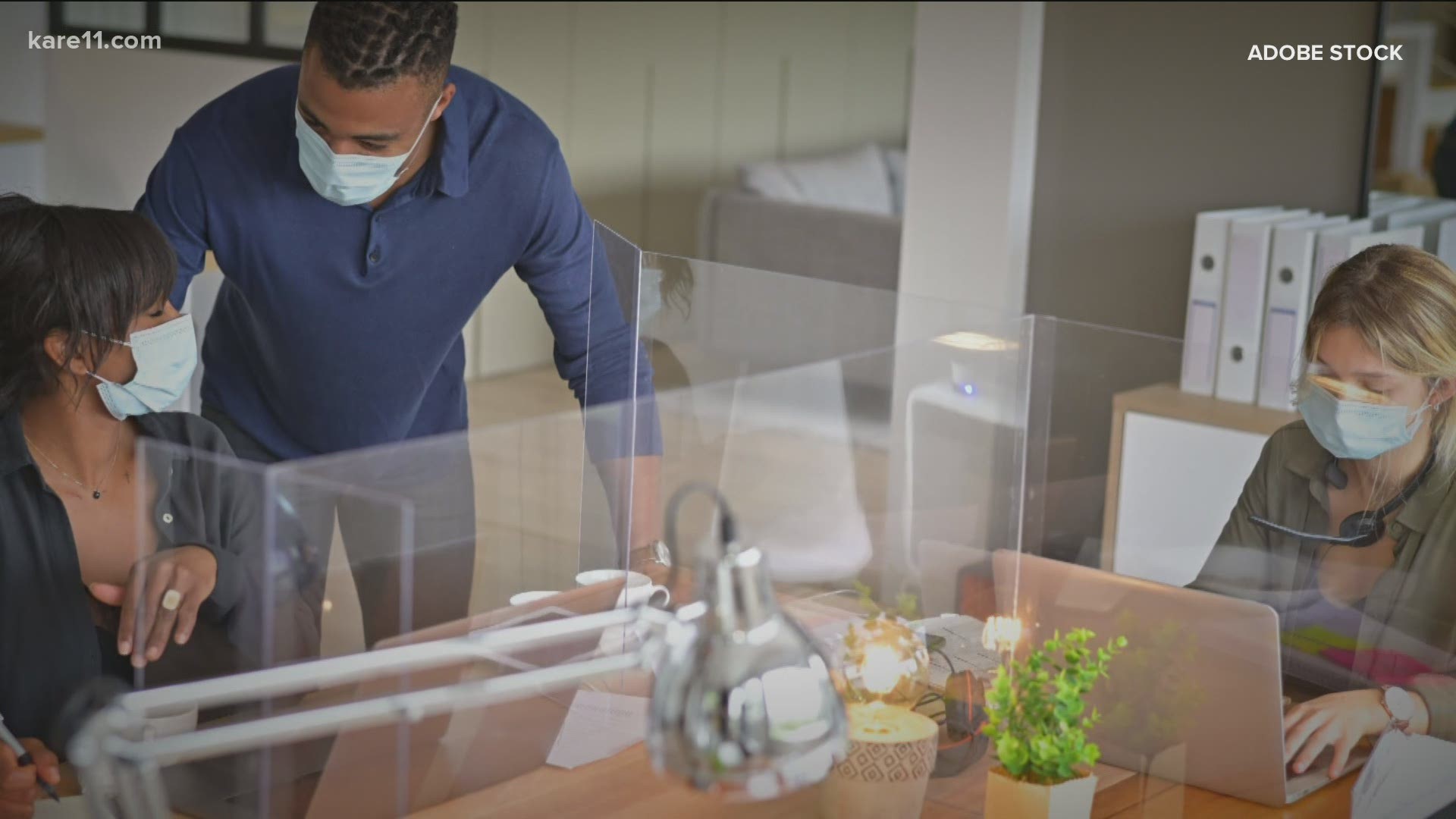GOLDEN VALLEY, Minn. — At the height of the pandemic, sales of plexiglass soared as a way for schools, offices and businesses to shield people from COVID-19.
But there was a problem.
Experts say there's no evidence plexiglass even works.
A metro area plastic manufacturer said at one point it took up to 20 weeks to get the product and that boom lasted about six months. But it was one that indoor air experts, like Dr. Marwa Zaatari, never believed in.
"Like hygiene theater, it's optics," said Dr. Zaatari. "It's psychological that you are shielded from the other person."
Dr. Zaatari is a mechanical engineer and member of the pandemic task force of the American Society of Heating, Refrigerating and Air-Conditioning Engineers.
The building scientist says the confusion started when health experts first thought large droplets spread the virus, like a sneeze - when really the Centers for Disease Control and Prevention later confirmed it was transmitted through tiny droplets in the air.
"It's just not common sense, that if you have plexiglass, you are still breathing the same shared air of another person," said Dr. Zaatari, who also says, too much plexiglass can prevent air from moving and could quite possibly lead to more virus transmission.
So, what should you do if you're welcoming co-workers back to the office or kids to school?
"If you can upgrade your ventilation system in a cost effective way, by all means," said University of Minnesota College of Science and Engineering Professor Chris Hogan.
He says a good system runs automatically and changes the air more than four times an hour.
"You can feel confident that the air change has protected you to go into that space later," said Hogan.
He says an upgrade can be expensive or a building can be too old, but that simple solutions like opening windows, limiting the number of people in a space and changing filters can keep people safe too.
"Those are the only proven and most of them are cost effective measures that work before COVID, they work during COVID and work well beyond COVID," said Dr. Zaatari.

